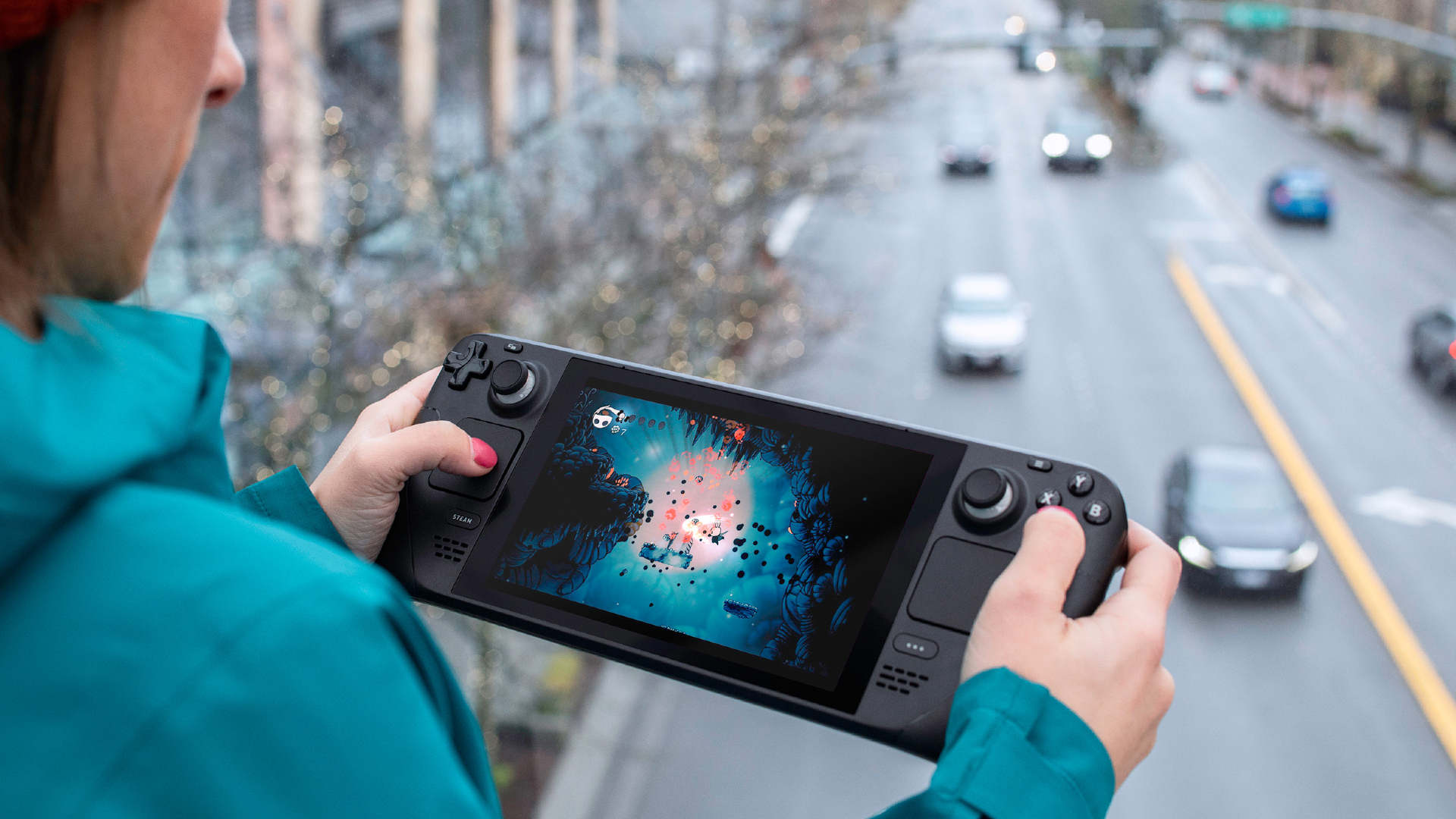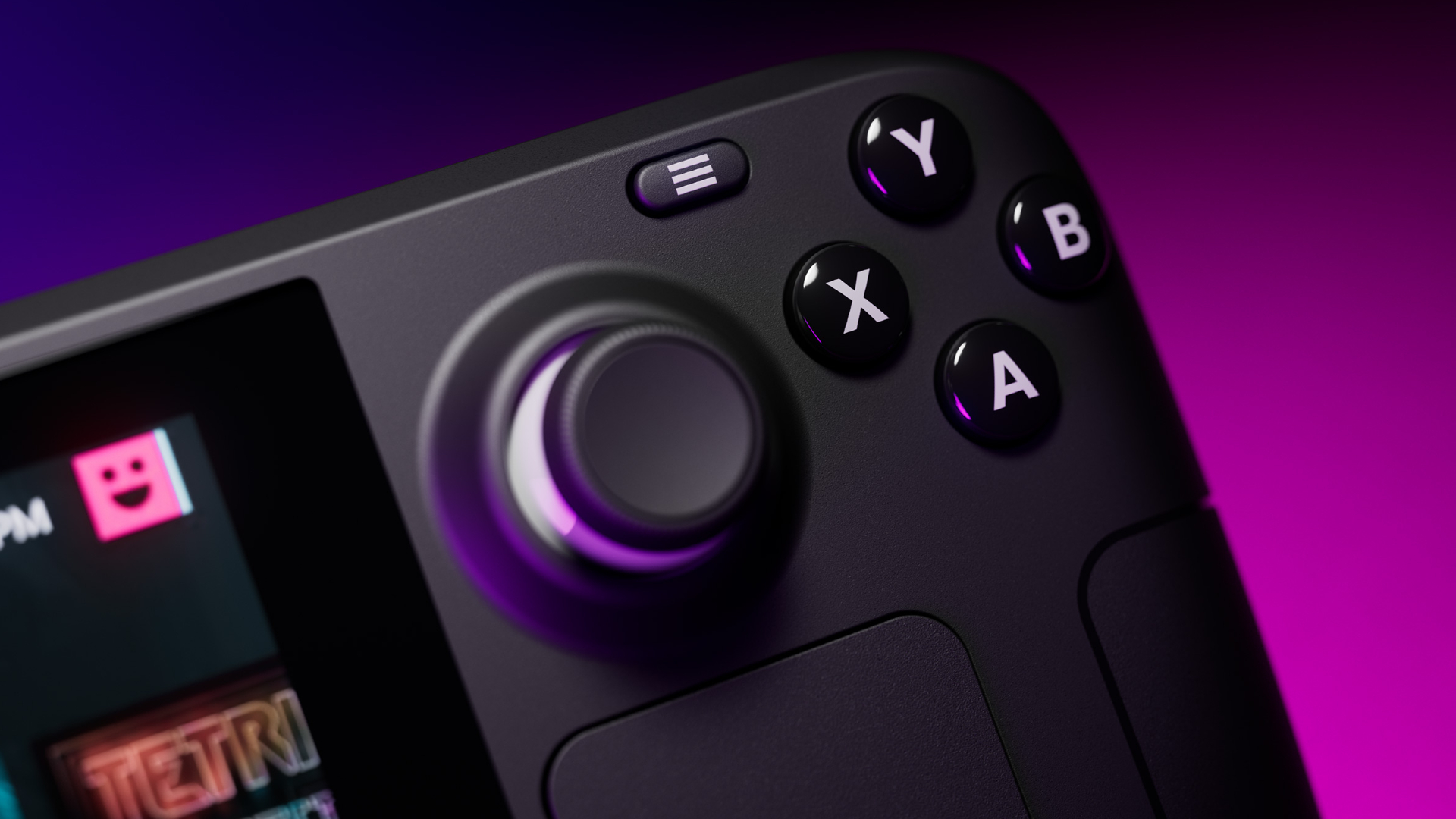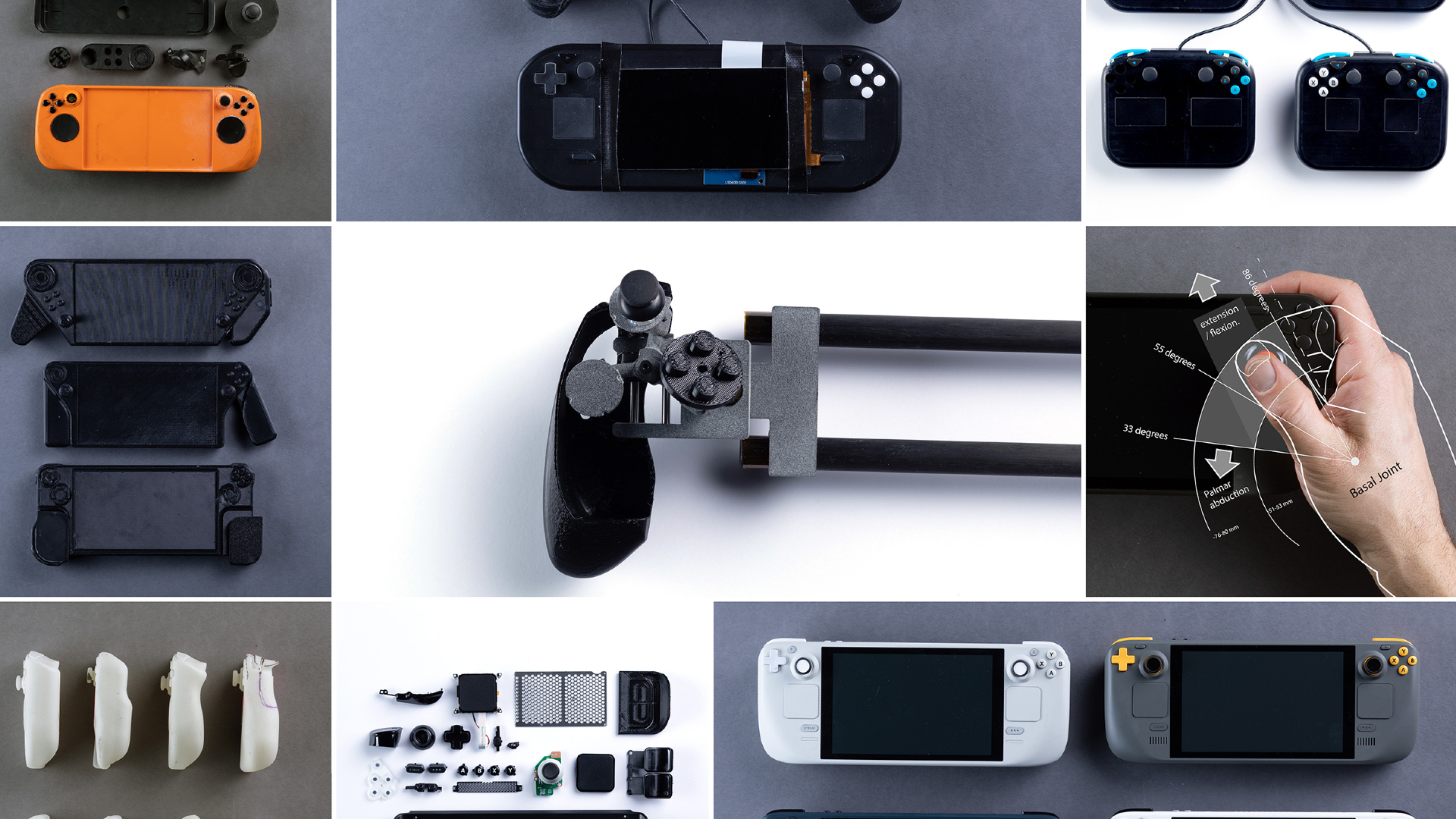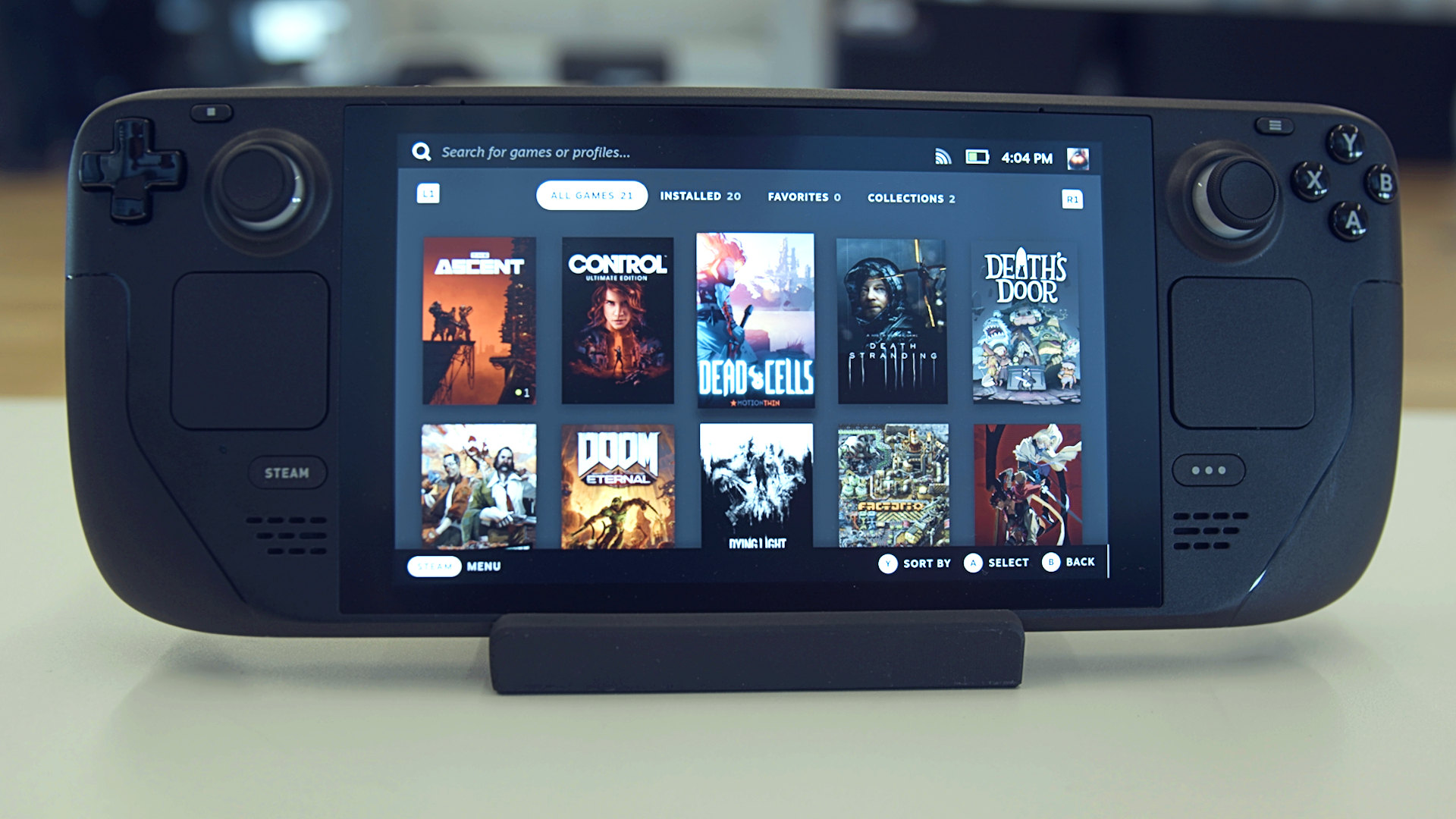Valve on Steam Deck: "We see this as a multi-generational category for us"
Steam Deck behind the scenes with Valve's designers

"It's not the first time we've shipped hardware. It's not the first time we've shipped software. And SteamOS is something that we've been working on for a while as well. But putting it all together into one package – and making enough of them – is proving difficult, though," says Valve's Lawrence Yang. He and fellow Steam Deck designer Greg Coomer really don't have time to do an interview, but somehow they agreed to speak to us anyway. Valve's new portable PC officially launches today and should start arriving in the hands of those who pre-ordered on February 28. But that doesn't mean Coomer and Yang can relax.
Right now they're fine-tuning the software, testing games, sending out updates to press who got early units, and this work isn't going to stop for some time. "The main thing we have to do after we ship is to try to make as many of these as we can," says Coomer. "Because the demand is definitely way outstripping our ability to supply the Steam Decks on day one. And that's going to remain the case for a while, at least a little while after we ship. A lot of our attention is going to be turned in that direction."
Developing news

We've been playing with a Steam Deck for a while now, and watching updates come through every day or so, tweaking this or that to get it ready for players, games piling up in the Steam Store's 'Great on Deck' category. Despite what a layperson might think, getting all of these complicated PC games to play nice with Steam Deck hasn't been all that difficult for developers.
"So many of them have received a Deck and then booted it up, only to find that there isn't really much for them to do to get their game working really well," Coomer says of the game devs Valve has shipped Steam Decks to. "There are exceptions, where people do need to jump through some hoops. They're mostly small ones. But the overwhelming theme and the response was one of surprise, like, you know, we got this new piece of kit, and our game is already done. That's never happened before."
Yang says the biggest hurdles have been games designed for big monitors, to make sure their text and UI is visible on the smaller screen, and adjustments to control schemes that only allowed for keyboards. "What's great about that is that if they make it better for Deck, they're also making it better for everything. So that game that previously couldn't use a gamepad now can." I, and fat-fingered gamers everywhere, throw up a silent prayer of thanks.
Steam of approval

Valve clearly wants to make it easy for gamers to know what will work and what might not – though most of the games we've tested have been problem-free – and has little green and orange icons, and question marks, to let people know whether or not it's been officially tested.
"We can actually see what people who have reserved the Deck are playing," says Yang. If you haven't reserved, that's not creepy stalker stuff, that's just the perk of selling the hardware through your own massive online gaming superstore. "So those are the top priorities, and then otherwise by community interest. And, we're rolling out the functionality still, but now developers can click a button that says 'please review this title" and then we would add it to the queue as well."
Weekly digests, tales from the communities you love, and more
Considering how many games are added to Steam every week, Yang's fully aware that isn't a process that will ever really end. "It's something that we see continuing to launch and then post-launch. Similar to Steam itself, we're always looking for feedback and seeing how people are using things, and just constantly iterating and updating. We're just uniquely positioned to be able to do that, especially for this device where we own the whole thing. We own everything, from the software to the firmware to the hardware – we can make everything better."
By the time customers get their own Deck, they should get a little extra treat too. As with The Lab, Valve's room-scale VR experience, and the Index controller's Aperture Hand Lab, Steam Deck will be getting its own Aperture-themed tutorial to guide users around their new Decks. "So like those other products, you know, no one here would call it a full game or anything. But it's still a pretty, pretty exciting piece of content," hints Coomer.
Steam Deck success and sequels

It was no surprise that the Steam Deck pre-orders were popular, but Valve was caught off guard when it realized the most expensive of the three tiers of Steam Deck was selling the best.
"It feels like a vote of confidence in a way," says Coomer. "The high-end version – the one that has the most storage – is the one that we have by far sold, or had the most reservations, come in for.
"We think that it may change over time. Right now, we've seen very high demand, but it's also the people who know Steam the best, who are very invested. They're early adopters. We're still not super confident that the ratio is going to stay the same over a long period of time, like years into the future, or months into the future. But yeah, so far, we've been surprised."
Things would have to go really sideways from where we are right now in order to make Valve and all those developers and customers decide that we shouldn't really continue.
Valve, the PC gaming colossus that has shaped the medium in so many ways, isn't looking at the Steam Deck as a one-hit-wonder. When Steam Deck starts shipping to consumers on February 25, it will only be the beginning.
"Everyone's assumption here is that, yes, we're going to be iterating on this as a new category of product," says Coomer. "We see this as a multi-generational category for us. I mean, everything we're seeing right now is that the demand is sufficient to support that. The software developers are enthusiastic enough that they want to support the device and bring content out for the device, and they're just wanting us to sell as many as we can. Things would have to go really sideways from where we are right now in order to make Valve and all those developers and customers decide that we shouldn't really continue."

Rachel Weber is the former US Managing Editor of GamesRadar+ and lives in Brooklyn, New York. She joined GamesRadar+ in 2017, revitalizing the news coverage and building new processes and strategies for the US team.


